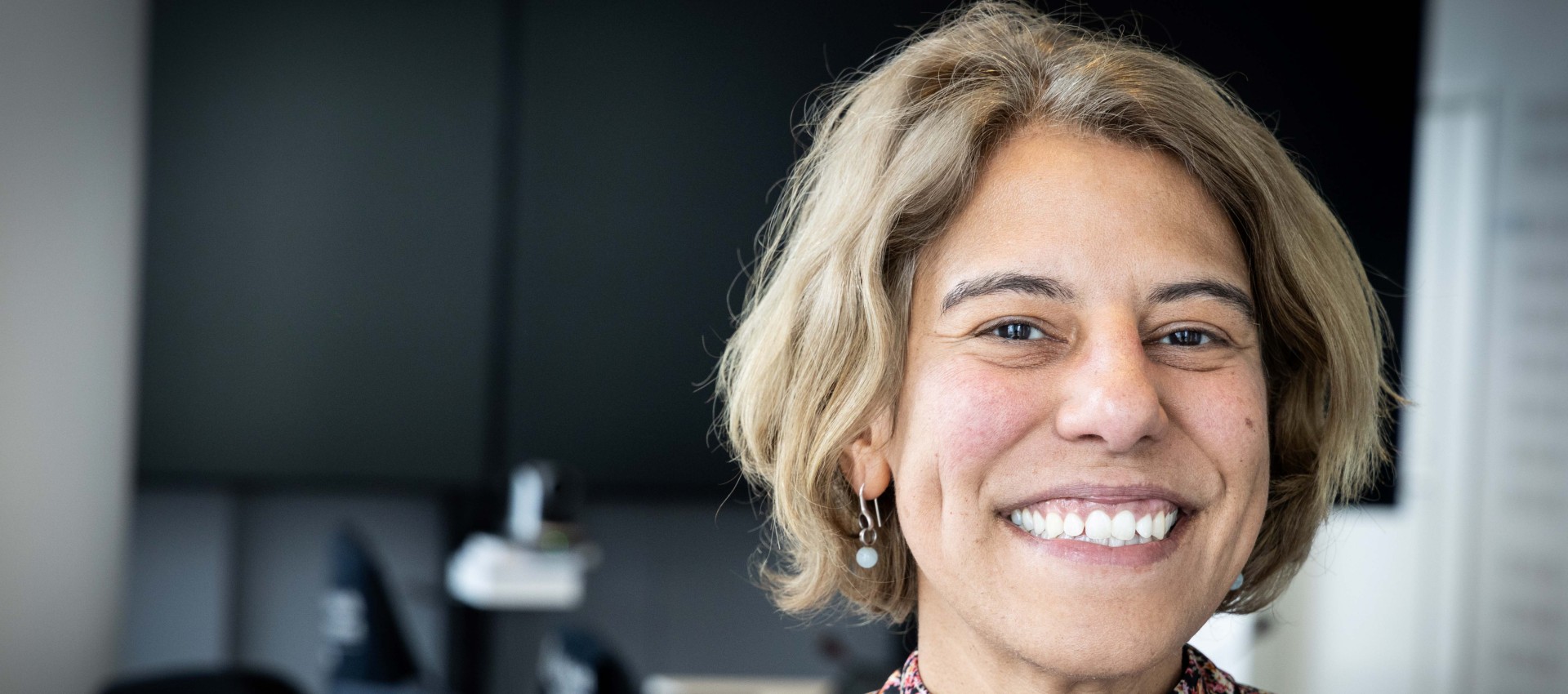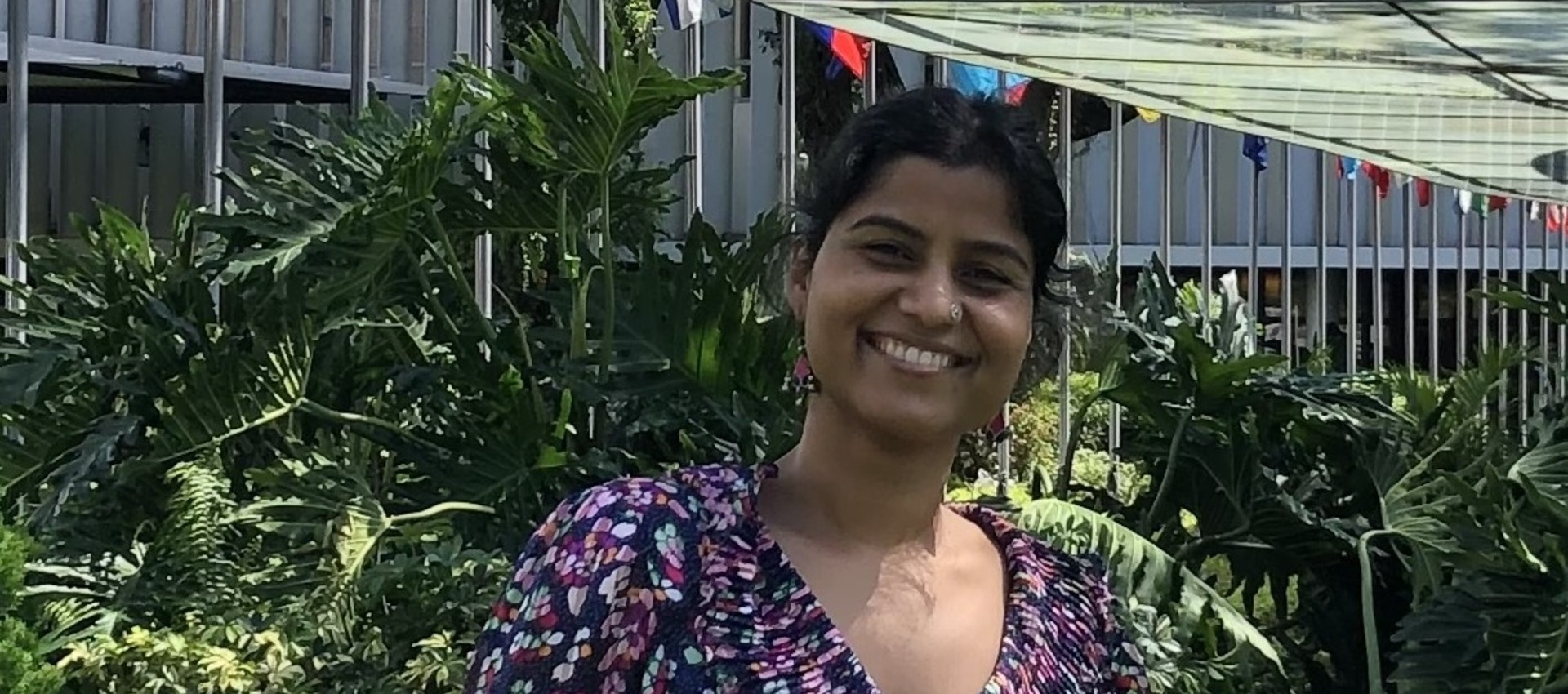For International Women’s Day, we celebrate the achievements of 3 remarkable women working at the forefront of global health. Margaux Meslé, Ana Paula Coutinho Rehse and Harsh Lata work for WHO’s Health Emergency Programme, which sits at the centre of global coordination, preparation and response to disease outbreaks and emergencies. Their journeys into science, their challenges and their advice for future generations are inspiring and enlightening.
Margaux Meslé: a passion for disease surveillance
Margaux Meslé, originally from France and now based in the Netherlands, has dedicated her career to understanding how infectious diseases spread. As a scientist with WHO, she works on the surveillance of respiratory viruses, including SARS-CoV-2, influenza and respiratory syncytial virus. “I’ve always been a curious person,” she says. “I like finding answers.”
Margaux's interest in infectious diseases began when she read about how the plague devastated populations in the Middle Ages. “I was just completely flabbergasted. How can this happen? How can something so small, that you can’t even see, have such a huge impact?” she recalls. This fascination led her to a earn a doctorate on how air travel spreads infectious diseases globally.
Joining WHO at the beginning of the COVID-19 pandemic was challenging but, Margaux explains, “Being able to share something with the world that is publicly available, that feeds into policy and decision-making at country, regional and global levels – that is super rewarding.”
Despite the pressures, Margaux finds balance through sports and archery. “If you’re not relaxed in your head, it will show on the shooting line. Being able to separate everything has been something I’ve worked on a lot over the years.”
For young women considering a career in science, Margaux’s advice is simple: “Be bold and believe in yourself. If you don’t try, you don’t get.”
Ana Paula Coutinho Rehse: ensuring safe health care

Ana Paula Coutinho Rehse. Credits: WHO
Ana Paula Coutinho Rehse, based at WHO/Europe, works in infection prevention and control, ensuring the safety of health-care practices. Originally a nurse, her career in global health began 20 years ago during a Marburg virus outbreak in Angola.
“It was one of my best work experiences ever because I could really contribute with the knowledge I had,” she says. “Even when you are in the most remote areas where WHO sends you, you can see that there’s a convening power – getting the best people around to provide smart solutions for teams on site.”
Ana Paula’s passion for health began in childhood when she came across a vaccination campaign for dogs and cats in a town square in her native Brazil. It was then that she realized the interconnectedness of human and animal health.
Her family played a crucial role in her journey. “My father was the first person that really empowered me to be whatever I wanted to be,” she shares. “It’s in your family, how you see the respect and empowerment of both genders.”
She urges young scientists to embrace knowledge and change. “Don't judge, be smart, study. If, by chance, you realize at any point in your career that you think ‘This doesn’t really bring me joy,’ change it.”
Harsh Lata: a disease detective who defies expectations

Harsh Lata. Credits: WHO
Harsh Lata, a technical officer in WHO’s Health Emergencies Programme, describes herself as a “disease detective”. She analyses vast amounts of health data to identify and assess emerging public health threats, from COVID-19 to poliomyelitis.
Her journey into science was deeply personal. She grew up in a part of India where girls were discouraged from studying. However, her father was her biggest supporter, finding her second-hand medical books when she told him she wanted to study medicine.
Harsh was inspired by Kalpana Chawla, the first woman of Indian origin in space. “I saw her on national television and I was like, ‘Oh my God, an astronaut and a woman!’”
Breaking barriers in science was not easy. On her first day on deployment with WHO, Harsh walked into a meeting on Ebola; the room was filled with senior male experts and most of the women were standing at the back. However, a female colleague brought the women forward and helped them find places, saying, “If we can’t have a seat at the table, how can we expect to have a voice at the table?”
Her advice to young women? “Let no one define what you can do. As they say, talent is equally distributed, but opportunities aren’t. So, if you don’t find those opportunities, create them for yourself, if no one is ready to give them to you.”
Empowering the next generation
The stories of Margaux, Ana Paula and Harsh highlight their resilience, intelligence and passion. Their journeys prove that with determination and the right support, women can break barriers and make a lasting impact on global health. This International Women’s Day, we celebrate their contributions and encourage future generations to follow in their footsteps.
You can listen to Margaux, Ana Paula and Harsh via a “Health in Europe” podcast episode produced for International Women’s Day 2025. Listen to the full episode via the link.




